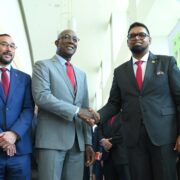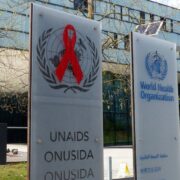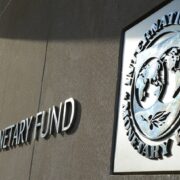Fix region’s transportation nightmare, says St Lucia PM
Black Immigrant Daily News
Prime Minister of St. Lucia Philip Pierre has urged CARICOM member states to redouble efforts towards fixing the region’s transportation issues and removing lingering trade barriers.
The regional leader said last weekend that the absence of any reliable transportation network in and around member states, given the “unfortunate demise of LIAT”, was a major hindrance to modern cooperation which regional leaders need to address as a matter of urgency.
“Travelling around the region has become a nightmare, both from the standpoint of high fares and reduced flight availability. It is having an undermining effect on the economic prospects of the region… This state of affairs must not be allowed to continue for much longer.Addressing the annual Errol Barrow Memorial Lecture hosted by the Democratic Labour Party (DLP) at the University of the West Indies Cave Hill Campus last Friday, Pierre said “The issue of regional air and sea transportation must be approached from the premise that regional transportation is a regional public good, and as such, governments must invest in and finance it because it is a duty they owe the people of the Caribbean.”
Examining the future of CARICOM as it celebrates 50 years and the legacy of Errol Barrow as a Caribbean champion, Pierre noted that though Barrow, along with Prime Ministers Forbes Burnham of Guyana, Michael Manley of Jamaica and Eric Williams of Trinidad and Tobago signed the Treaty of Chaguaramas in 1973 with the intent of creating CARICOM with deeper ties between the islands, this vision has unfortunately been hindered in several areas.
He said that despite the phased approach to freedom of movement throughout the islands, there were still difficulties with national legislation and administrative frameworks falling short of what was required at this stage.
Pierre added: “Regional integration in the Caribbean will never be effective if the people cannot, and do not have the means and the systems to move freely between the islands and to easily communicate between themselves and share their ambitions and their experiences with each other. How can we be serious about building a vibrant regional community and single market, if the people who are the main participants, can not get around the region freely and affordably?”
According to the St Lucia PM, one of the key pillars of CARICOM – economic integration, which is supported by the philosophy of free trade – has also been slow in its adoption across the various member countries to a worrying degree. He stressed that the removal of the current trade barriers between the islands was a must.
“If free trade, therefore, is to be a more significant stimulant to economic development throughout the region, and therefore positively impact the lives and living standards of the peoples of the region, then in the decades ahead CARICOM member states must make a concerted effort to dramatically increase trade by removing the outmoded barriers that still encumber genuine free trade,” he explained.
Pierre also pointed to the colonial era’s influences on economic policies as another factor that needs to be corrected in order to improve the social and economic output of CARICOM.
“There is a school of thought that believes that in the CARICOM context, the freeing of trade among member states is necessary but insufficient to obtain the gains of economic integration. It argues that it also necessitates the removal of colonial economic and social structures and production and consumption patterns that have kept the region at a low level of development.
“It is clear that if CARICOM is to deliver on raising the standards of living of its people, as Errol Barrow had hoped, the deepening of regional integration through the CSME, must proceed at 50 times the pace of integration during the next 50 years.
“We must revisit with some urgency the agreement for a single economy, whose attainment is now a goal on a distant horizon.”Pierre reminded attendees that it was the duty of citizens and leaders within the region, to fully support the true purpose and ideology behind CARICOM, as it will serve as an integral support and development body for all.
“As CARICOM ends the first 50 years of regional integration, I urge all of us, leaders and citizens alike, to adopt the approach of Errol Barrow and the other leaders, that in this journey, the only goal must be to see the Caribbean fully integrated so that in 50 years’ time CARICOM would not have gone, but CARICOM would have become, not a community of states, but a truly integrated community of the peoples of the Caribbean – economically prosperous, socially advanced, culturally confident, and proudly independent.”
Donate At Caribbean News Service, we do not charge for our content and we want to keep it that way. We are seeking support from individuals and organisations so we can continue our work & develop CNS further.
NewsAmericasNow.com








